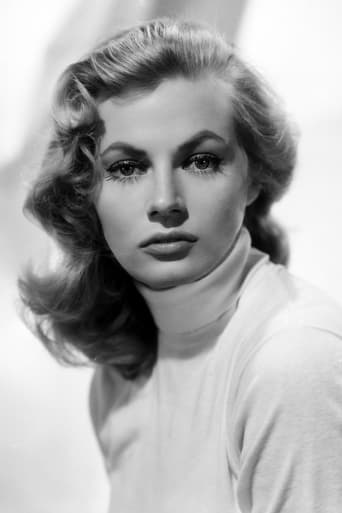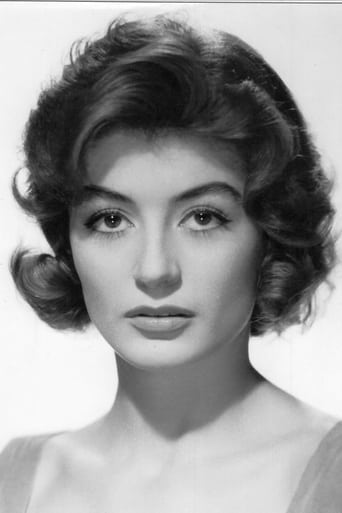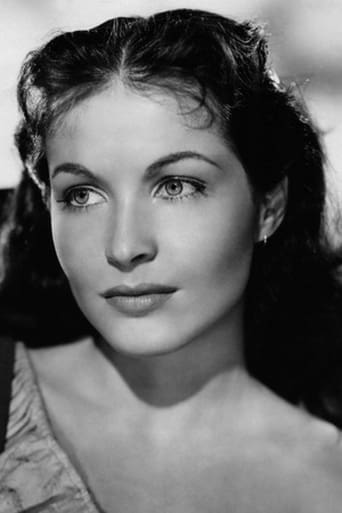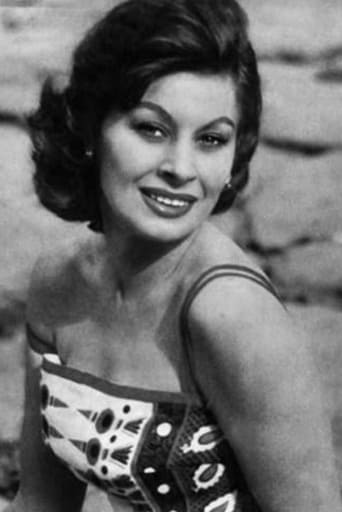Solemplex
To me, this movie is perfection.
Mjeteconer
Just perfect...
VeteranLight
I don't have all the words right now but this film is a work of art.
Hayden Kane
There is, somehow, an interesting story here, as well as some good acting. There are also some good scenes
christopher-underwood
Generally, I have become more and more certain that 90 minutes is the most reasonable length for any film. So, here we are contemplating watching the famous Fellini epic and so entranced have I been with recent Blu ray viewings of Il Bidoni and La Strada, I take my eye off the ball and forget this runs almost three hours. Of course, it turns out not to matter a joy for it is a joy to watch from start to finish. The camera work and direction are perfect and every scene looks wonderful. Some of the dialogue seems a little arch today, did people really talk like that? Perhaps yes, clearly there were a lot of intellectuals or at least pseudo intellectuals about. Everything unfolds seemingly without effort and in a seeming natural way. We swing from church to whores and literature to night club with the odd something to eat and rather a lot to drink thrown in. Strange times in Italy are being alluded to here and to what extent it was the freedom afforded by the end of the war and a certain flow of money or whatever it is certain that the scandal over the discovery of the body of young Wilma Montesi on the beach and talk of sex and drugs in high places fuelled this little fire. Whether Fellini's invention of the word, paparazzi originated from the Italian word for sparrow or mosquito, the intention is clear and remarkable but then almost everything in this film is. In conclusion I must mention Anita Ekberg and confirm that my screen really did sparkle and shine throughout the period she was there and such was her presence, thanks to lighting, framing and her own seeming 'love of life, that her afterglow prevented the film seeming in any way to lapse into ordinariness once she was gone. Fabulous film and true example of pure cinema. Indeed, I understand there was not even a script.
martindonovanitaly
Great artists are like prophets whether they mean it or not. Think of H G Wells and Ray Bradbury or Paddy Chayesfski for that matter. Here Federico Fellini warns us about the disenchantment of plenty. So, at the end, this scandalous film of 1960 is a morality tale. Marcello Mastroianni is superb, a beautiful exterior with an interior that is dying, slowly but surely. The term "paparazzo" was coined in this film. The hunters of the banal grew in numbers over the years but not in scope,
Anita Ekberg became a symbol of the sixties and who was she? A fantasy, impossible to reach. Real is his wife, the splendid Yvonne Fourneaux. Real is his father, played with heart breaking resignation by Annibale Ninchi or the suicide of his close friend, the intellectual played by Alain Cuny. La Dolce Vita is almost 58 years old and I imagine that the its message, like in most art, will live forever.
federovsky
Society was changing fast in these few years, and this film, displaying a social sophistication virtually unknown and surely prophetic, may have been instrumental in changing it. Perhaps this is the first time the world had seen some of these characters and situations, the dizzy 60s blonde (plus the husky variant), the paparazzi, and swinging - not shown explicitly, but only thinly veiled.Journalist Marcello (Mastroianni) is on a trajectory towards nonchalant decadence, the benchmark being set at the beginning by bored socialite Anouk Aimee, who wants to do it in a prostitute's bed while being watched. This is the first section of the film and must have knocked the audience off their seats. It is also perhaps the finest and most meaningful section, notwithstanding Anita Ekberg in the Trevi fountain (it's a pity Ekberg didn't keep the kitten on her head as it was beautifully symbolic).Each section reads like a portrait of the deadly sins of moral decadence: insincerity (Aimee), superficiality (Ekberg), unreliability (his father), weakness (Steiner), insecurity (his girlfriend), and, least effectively, irrationality (the crowd at the miracle site, a long barely relevant section that the film would have been better without). Individually these things may not bring a man down, but together - the message seems to be - they are enough to erode one's resistance.Actually, the film may not be about creeping decadence at all, but simply nihilism, the inevitable response to the ultimate meaninglessness of things. In that sense, every section here is not about a sin, a failing, but about meaninglessness, the impossibility, despite our best intentions, of being what we really want.As with many Fellini films, there's too much raucousness. There are too many parties populated by insufferable characters. Fellini got carried away here and someone ought to have reined him in. Almost all of these peripheral characters are over-the-top-pretentious which gradually dissolves the realism, and, with it, our sympathy. It's always the quiet moments that work best - perhaps that's a consequence of the dubbing technique, which makes the garrulous scenes unpleasant, but when the circus backdrop falls, the sudden serenity is startling and simple gestures take on extraordinary meaning - then it becomes sublime cinema.
amesmonde
Chronicles a week in the life of philandering journalist Rubini, who devotes his entire existence to hedonistic pleasure.Federico Fellini offers a wonderful dream like film with stunning visuals, it may not be appreciated by the general film buff or the modern movie goer. Its structure is unorthodox, however, it was and still is highly influential. Of course the main reason to watch this is for the famous scene - where Sylvia (Anita Eckberg) gets wet in the Trevi fountain. La Dolce Vita also coined the word 'paparazzi' and a film can rarely can boast such a lasting impact on the world.







